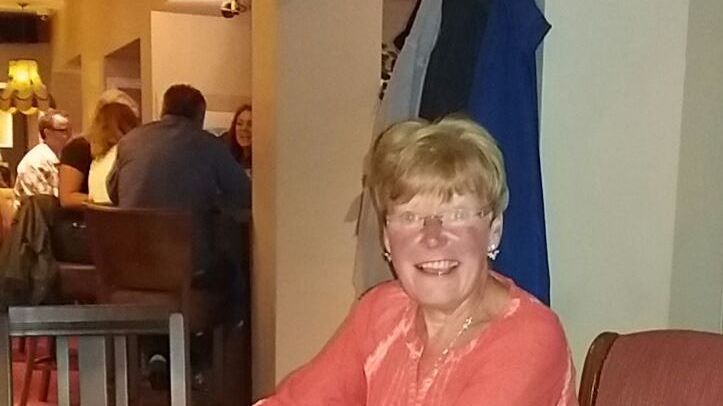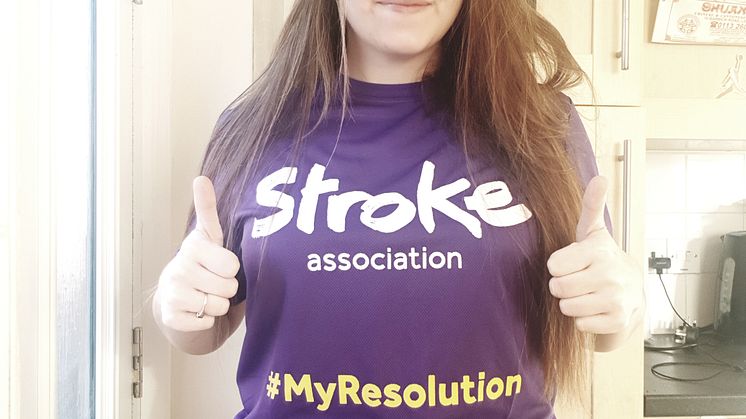
Press release -
Tyldesley stroke survivor backs Stroke Association’s FAST message
Stroke survivor Josie Bates, 55, from Tyldesleyis urging people to be aware of the warning signs of stroke, and share the FAST message to help save more lives.
Josie’s grandfather passed away in 1979 following a stroke. In May 2014, Josie’s mum had a stroke, followed by a second, severe stroke in hospital, and sadly died just a week later. Just over a year later, in June 2015, Josie had a stroke herself at the age of 53.
Josie said: “My husband Phil is self-employed and is usually at work at 7am. However, that morning, I woke up and my right arm felt like lead, it was aching. I just thought I’d had slept awkwardly on it. Phil brought me a coffee and I struggled to pick it up. The day before, I promised him I’d order him a golf buggy online, but when I went to do it I couldn’t control my hand. I started to realise something was desperately wrong.”
Josie told her husband Phil, and he recognised the signs of a stroke. He immediately called 999 and the ambulance came within seven minutes. Josie was taken to Salford Royal and admitted to the acute stroke unit.
Josie said: “After my stroke, I was terrified of going to sleep as I didn’t want to experience the same fate as my mum. Phil had to help me with my food, as my stroke took most of the movement in my right side. The care I received in hospital was unbelievable. I was then sent to Wigan Hospital and put on a ward with eight women in their 70s, 80s and over. I’ve never been so upset in all my life.
“Despite this, everyone was lovely with me. When I came out of hospital, I had the best care and attention I could ask for. I’ve had physiotherapy for my hand, speech and language therapy and occupational therapy.
“Since my stroke, I’ve had to readjust the way I do things. In that split second, my whole life changed. I now have aphasia, which affects my ability to communicate, and I get really frustrated. I can’t feel the right side of my face which has also affected my speech. I also have really bad mood swings. One minute I’m as happy as Larry, and the next I fly off the handle. I was never like that before.
“The day I had my stroke is the day I lost me. I’m not the same person any more. The old me has gone. But I always say don’t give up. I want to tell people that stroke can happen to people at any age and at any time.”
Josie was supported by the Stroke Association’s service in Wigan, by Elaine Pye and Sarah. Josie said: “The support I received from the Stroke Association was more than helpful. It was the thing that kept me going. The one good thing about my stroke is meeting Elaine and Sarah, it brings back faith in humanity.”
The Stroke Association is raising awareness of the signs of stroke, calling on people to learn the symptoms, and call 999 as soon as they spot them.
The FAST test helps people recognise the most common symptoms of a stroke and the right action to take:
FACE: Can the person smile? Has their mouth or eye drooped?
ARMS: Can the person raise both arms?
SPEECH: Can the person speak clearly and understand what you say?
TIME to call 999
Chris Larkin, Regional Director at the Stroke Association, said: “Stroke can happen to anyone at any age, at any time, and when it strikes, every second counts.
“A stroke is a medical emergency, so recognising the signs and calling 999 for an ambulance is crucial. The quicker a person arrives at a specialist stroke unit, the quicker they will receive appropriate treatment. That’s why we’re calling on
people in the North West to learn the FAST test and share it with their friends and family. Knowing how to spot the warning signs of a stroke could save a life.”
To find out more about the FAST test, and the Stroke Association’s work to raise awareness of the warning signs of stroke, visit www.stroke.org.uk/FAST.
Topics




